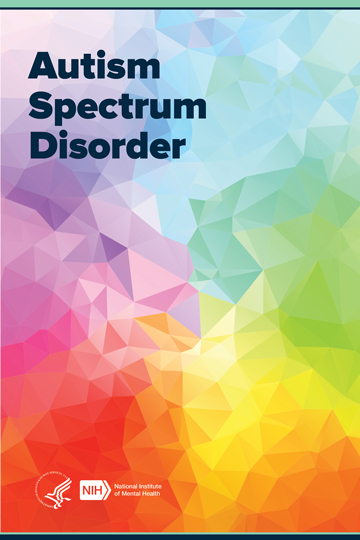The Duty of Education And Learning in Supporting Students with Autism: Ideal Practices
The Duty of Education And Learning in Supporting Students with Autism: Ideal Practices
Blog Article
Comprehending Autism: A Comprehensive Overview to Indicators and Symptoms
Autism Spectrum Condition (ASD) encompasses a wide variety of features that can dramatically influence a person's social communications and daily performance. Comprehending these subtleties not just aids caretakers and educators in providing ideal assistance yet also cultivates an extra comprehensive setting for people with ASD.
Overview of Autism Spectrum Disorder
Specifying Autism Spectrum Problem (ASD) involves recognizing it as a complicated neurodevelopmental problem characterized by a variety of obstacles in social communication, interaction, and behavior patterns. The term "range" reflects the vast irregularity in signs and symptoms and their severity, which can differ significantly from one individual to one more. ASD typically shows up in very early childhood, although some people may not get a medical diagnosis till later in life.
Aspects influencing the growth of ASD include hereditary tendencies and ecological elements, although the precise causes continue to be under investigation. Medical diagnosis typically counts on behavior analyses, as there are no conclusive medical tests for ASD. Early treatment is vital and can substantially improve end results, focusing on boosting communication skills, social interactions, and flexible behaviors.
People with ASD may likewise show one-of-a-kind strengths, such as remarkable attention to information or particular locations of competence. Recognizing the complex nature of ASD is vital for cultivating an inclusive environment that suits neurodiversity. Continued research is important for creating effective treatments and support group, allowing individuals with ASD to grow and satisfy their prospective within culture.
Common Signs of Autism
Recognizing the common indicators of Autism Range Problem (ASD) is vital for early identification and treatment. These indications can vary widely in seriousness and discussion, yet particular qualities are regularly observed in people with ASD.
Among one of the most prevalent signs is a marked problem in establishing and maintaining eye call. People may additionally exhibit minimal rate of interest in social interactions and show a choice for singular play. Repetitive behaviors, such as hand-flapping, rocking, or rotating items, usually emerge early in childhood years. Furthermore, some youngsters might develop stringent routines and become distressed if these routines are disrupted.
Sensory level of sensitivities are likewise common; individuals might panic or underreact to sensory stimuli, such as audios, structures, or lights. autism. Language development can be irregular, with some youngsters showing postponed speech or using language in unusual means, including echolalia-- repeating expressions or sentences listened to somewhere else
It is necessary to note that not every person with ASD will display all these indications, and the level of these habits can differ considerably. Early recognition permits timely support and resources, enhancing the lifestyle for those on the range.
Social Interaction Challenges
Social interaction difficulties are a characteristic of Autism Range Condition (ASD), impacting an individual's capability to engage properly with others. These difficulties can materialize in numerous means, consisting of challenges in starting and preserving conversations, recognizing social signs, and responding appropriately in social communications.
Individuals with ASD might deal with nonverbal communication, such as eye call, faces, and body language. This can bring about misunderstandings, as their communicative intent might not be appropriately interpreted by others. They might find it challenging to realize the subtleties of tone and context, which are important for effective communication.
In group settings, individuals with ASD might really feel overloaded and might not understand exactly how to sign up with in discussions (autism). They might also show irregular conversational patterns, such as monologuing concerning particular passions without acknowledging social reciprocity
Additionally, these difficulties can cause social seclusion or difficulties in forming connections, as peers might misunderstand their habits or communication style. Comprehending these social communication obstacles is critical for cultivating encouraging atmospheres that advertise social skills development and enhance the high quality of interactions for individuals on the autism spectrum.
Sensory Responses and sensitivities
Numerous people with Autism Range Problem (ASD) experience increased sensory level of sensitivities that can considerably impact their everyday lives. A person with ASD may locate daily noises, such as a vacuum cleanser or crowded atmospheres, extremely traumatic, leading to stress and anxiety or crises.
Sensory handling differences in individuals with ASD can additionally influence their capacity to participate in get redirected here routine tasks and social communications. As an example, a youngster that is sensitive to touch may stand up to physical love or avoid specific clothes fabrics. Additionally, a choice for sure structures or tastes can restrict nutritional options and create difficulties throughout mealtimes.
Understanding these sensory level of sensitivities is essential for acknowledging the unique experiences of individuals with ASD. Recognition of their sensory accounts can cultivate far better interaction and support strategies, producing a setting that fits their requirements and enhances their top quality of life. Ultimately, acknowledging sensory level of sensitivities is a look at here now crucial part of comprehending the broader range of autism.

Supporting Individuals With Autism
Reliable support for people with Autism Range Condition (ASD) is important for enhancing their general wellness and cultivating independence. Assistance techniques need to be customized to fulfill the unique demands of each individual, considering their challenges and staminas.

Social abilities training can also play a crucial function. autism. Engaging individuals in group activities or role-playing situations can boost their capacity to navigate social communications. Furthermore, it is necessary to enlighten family participants, caregivers, and peers concerning ASD to promote a comprehensive and encouraging why not find out more community
Verdict
In conclusion, an extensive understanding of Autism Spectrum Disorder is necessary for acknowledging its symptoms and indications. Early recognition of usual characteristics, such as social communication difficulties and sensory level of sensitivities, allows caretakers and educators to execute reliable interventions. By fostering boosted interaction and social skills, people with autism can navigate their environments much more effectively. Eventually, boosted recognition and support can substantially boost the top quality of life for those affected by ASD.
Autism Spectrum Disorder (ASD) includes a large variety of qualities that can considerably impact a person's social interactions and day-to-day functioning.Individuals with ASD may battle with nonverbal interaction, such as eye contact, facial expressions, and body language.Lots of individuals with Autism Range Disorder (ASD) experience increased sensory sensitivities that can dramatically affect their day-to-day lives.Sensory handling distinctions in individuals with ASD can additionally affect their capacity to engage in social communications and routine tasks.Understanding these sensory sensitivities is crucial for recognizing the unique experiences of people with ASD.
Report this page